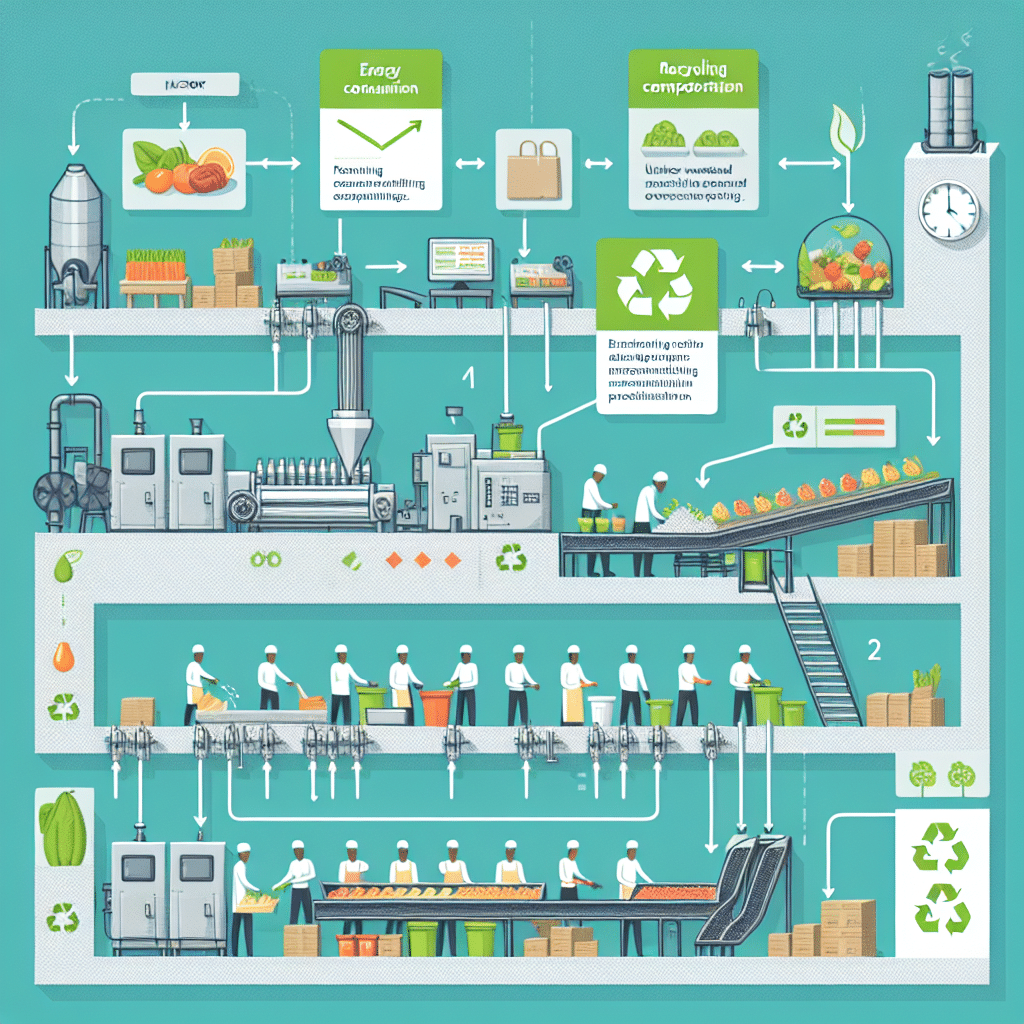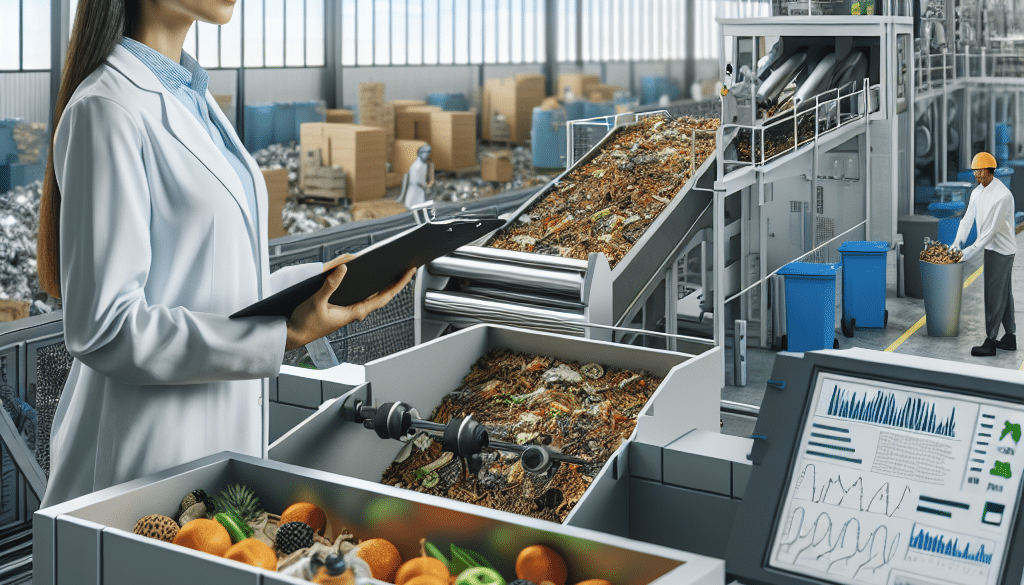Improving Sustainability and Reducing Food Waste During Manufacturing
-
Table of Contents
- Enhancing Sustainability and Minimizing Food Waste in Manufacturing
- Understanding the Impact of Food Waste
- Strategies for Reducing Food Waste in Manufacturing
- Case Studies: Success Stories in Sustainable Manufacturing
- Technological Innovations in Waste Reduction
- Regulatory Frameworks and Incentives
- Challenges and Considerations
- Conclusion: Key Takeaways for Sustainable Manufacturing
- ETprotein: Sustainable Protein Solutions
Enhancing Sustainability and Minimizing Food Waste in Manufacturing

In the face of global environmental challenges, the manufacturing sector is under increasing pressure to adopt sustainable practices and reduce waste. Food manufacturing, in particular, plays a critical role in this endeavor, as it is both a significant contributor to waste and a vital industry for human survival. This article explores strategies for improving sustainability and reducing food waste during the food manufacturing process, offering insights and examples that can help manufacturers make impactful changes.
Understanding the Impact of Food Waste
Food waste is a pressing issue with far-reaching consequences. According to the Food and Agriculture Organization (FAO) of the United Nations, approximately one-third of all food produced for human consumption is lost or wasted globally. This not only represents a tremendous economic loss but also contributes to environmental degradation through the wastage of resources used in production and the generation of greenhouse gases from decomposing food.
Strategies for Reducing Food Waste in Manufacturing
Manufacturers can implement several strategies to reduce food waste, which can also lead to cost savings and improved sustainability. Here are some key approaches:
- Efficient Inventory Management: Implementing just-in-time production and inventory systems can help reduce overproduction and spoilage.
- Process Optimization: Continuously analyzing and improving manufacturing processes can minimize waste generated during production.
- By-product Utilization: Finding uses for by-products or establishing partnerships for their redistribution can turn waste into valuable resources.
- Technology Integration: Advanced technologies like AI and IoT can help monitor and manage waste more effectively.
- Employee Training: Educating staff on sustainable practices can lead to more conscientious production behaviors.
Case Studies: Success Stories in Sustainable Manufacturing
Several companies have successfully implemented sustainable practices that have significantly reduced food waste.
Technological Innovations in Waste Reduction
Technological advancements are providing new opportunities for manufacturers to reduce waste. Innovations such as precision agriculture, blockchain for supply chain transparency, and smart packaging that extends shelf life are just a few examples of how technology is aiding in the fight against food waste.
Regulatory Frameworks and Incentives
Governments around the world are recognizing the importance of reducing food waste and are implementing regulations and incentives to encourage manufacturers to adopt sustainable practices. Tax incentives, grants, and awards for sustainable practices are some of the ways governments are supporting these efforts.
Challenges and Considerations
While the benefits of reducing food waste are clear, manufacturers face challenges such as the cost of implementing new technologies, resistance to change, and the need for industry-wide collaboration. Addressing these challenges requires a concerted effort from all stakeholders involved.
Conclusion: Key Takeaways for Sustainable Manufacturing
Improving sustainability and reducing food waste in manufacturing is not only an environmental imperative but also a business opportunity. By adopting efficient inventory management, optimizing processes, utilizing by-products, integrating technology, and training employees, manufacturers can make significant strides in reducing waste. Success stories and technological innovations offer inspiration and practical solutions for those looking to make a change. With the support of regulatory frameworks and incentives, the manufacturing industry can overcome challenges and make a positive impact on the environment and society.
ETprotein: Sustainable Protein Solutions
In line with the commitment to sustainability, ETprotein offers a range of organic bulk vegan proteins that are non-GMO and allergen-free. Their products, including rice protein, pea protein, and various seed proteins, provide manufacturers with high-quality, sustainable protein options that can help reduce environmental impact. By choosing ETprotein’s products, manufacturers can contribute to a more sustainable food system while meeting consumer demand for eco-friendly products.
About ETprotein:
ETprotein, a reputable protein and L-(+)-Ergothioneine (EGT) Chinese factory manufacturer and supplier, is renowned for producing, stocking, exporting, and delivering the highest quality organic bulk vegan proteins and L-(+)-Ergothioneine. They include Organic rice protein, clear rice protein, pea protein, clear pea protein, watermelon seed protein, pumpkin seed protein, sunflower seed protein, mung bean protein, peanut protein, and L-(+)-Ergothioneine EGT Pharmaceutical grade, L-(+)-Ergothioneine EGT food grade, L-(+)-Ergothioneine EGT cosmetic grade, L-(+)-Ergothioneine EGT reference grade and L-(+)-Ergothioneine EGT standard. Their offerings, characterized by a neutral taste, non-GMO, allergen-free attributes, with L-(+)-Ergothioneine purity over 98%, 99%, cater to a diverse range of industries. They serve nutraceutical, pharmaceutical, cosmeceutical, veterinary, as well as food and beverage finished product distributors, traders, and manufacturers across Europe, USA, Canada, Australia, Thailand, Japan, Korea, Brazil, and Chile, among others.
ETprotein specialization includes exporting and delivering tailor-made protein powder and finished nutritional supplements. Their extensive product range covers sectors like Food and Beverage, Sports Nutrition, Weight Management, Dietary Supplements, Health and Wellness Products, and Infant Formula, ensuring comprehensive solutions to meet all your protein needs.
As a trusted company by leading global food and beverage brands and Fortune 500 companies, ETprotein reinforces China’s reputation in the global arena. For more information or to sample their products, please contact them and email sales(at)ETprotein.com today.












